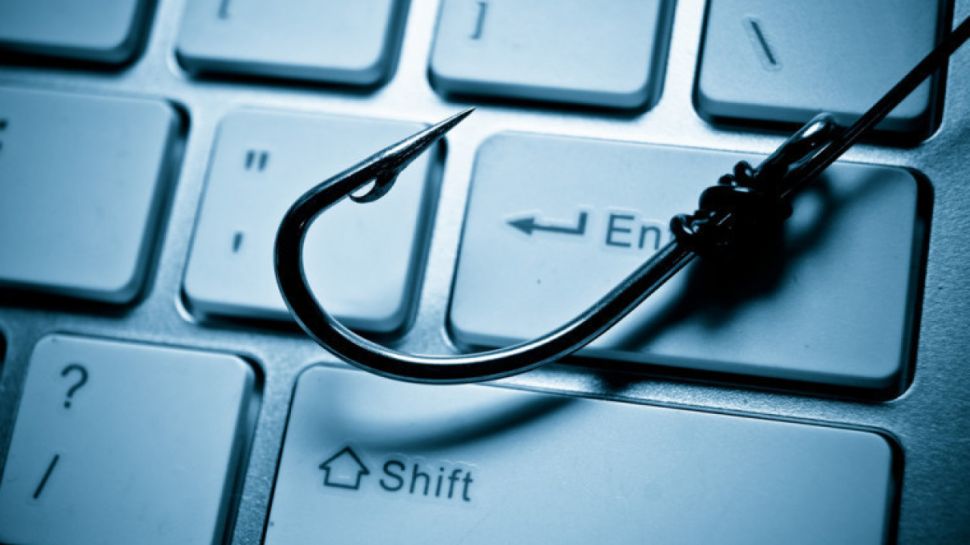You're sitting comfortably watching TV at home when there is a knock at the door. You answer it to find a police officer with a warrant for your arrest for money laundering.
Despite your protestations and obvious innocence, there is a problem: your digital fingerprints are all over the case. How can this be?
Welcome to the world of ID fraud, the inevitable consequence of identity theft.
- Protect your privacy online with one of the best VPN services
- Prevent others from accessing your network with the best secure routers
- Also check out our roundup of the best malware removal software
What Is ID Fraud?
Identity fraud (commonly labeled ID fraud) is when a stolen identity is used to commit fraud. In most cases, ID fraud is a financial crime; it takes advantage of the victim's financial position to take out loans and other credit lines in their name.
ID fraud also occasionally relies on impersonation. Thanks to the mass identity theft industry that has sprung up around the internet, impersonation is rare these days. Thanks to the number of ways credit can be applied online, it's largely unnecessary.
ID fraud is often accompanied by money laundering. For example, goods might be paid for using the victim's money, delivered to an address managed by the thief, then sold on.
How They Steal Your Identity
Before ID fraud can be committed, identity theft must first occur. But how do these criminals get their hands on your data?

Phishing
Perhaps the number one reason behind identity theft is the double-pronged attack of phishing and spoofing websites.
The play is simple: you receive a message via email, SMS, or instant, complete with a link you're supposed to click. So it might be for a bank, credit card, or a dating site in the case of instant messaging.
Following the link takes you to an actual copy (a spoof) of the related website. You're asked to log in or confirm some details. These are recorded by scammers and used to steal your identity.
This scam can also be conducted over the phone. For example, an unsolicited caller claims to be from your bank and asks you to confirm your login details; these are then used to conduct ID fraud. The fraudster might even record the call to play back to an automated login service to gain access.
Bag-snatching
The contents of your bag, purse, or wallet can provide easy pickings for an ID thief. Credit cards, debit cards, your phone, and Social Security card can all deliver what the identity thief is looking for.
To stay safe, only take the cards you need. Wear your bag securely across your body, and keep cards, wallets, purses, and everything else out of sight and reach. Remove cards only when paying for goods.
Shoulder surfing
While paying for those goods, be sure to check the proximity of those around you. If a PIN is required at the checkout or an ATM, anyone paying attention can spot what the code is. All it takes then is for your card to be stolen and the PIN used by the ID thief.
Cover your PIN as it is entered to keep the code a secret.
Physical document theft and "dumpster diving"
You must shred old bank statements and letters from your bank or card company. Any personally identifiable paperwork should also be shredded. The reason? All it takes is someone to go through your bins and find valid old documents for your identity to be stolen.
Known as "dumpster diving," this is a tried and tested method to succeed at identity theft. The best solution is to shred your documents, ID cards, and old passports.
The alternative is simply breaking into your home and stealing important documents. Keep bank records, passports, and other identifying documents locked away to combat this.
- These are the best paper shredders on the market

Oversharing on social media
Have you ever shared too much on Facebook? Unfortunately, the answer is probably "yes." From photos of days out, to where you live, when you're at work, on holiday… it's oversharing. And with the wrong privacy settings set, anyone can learn everything there is to know about you.
Worse, by observing your activity on Facebook, a daily pattern emerges. Criminals could use this to determine when to visit your home and steal those vital documents that you still haven't locked away.
While Facebook oversharing is the main culprit, any social network that encourages you to share every aspect of your life should be used less.
- Also check out the best social media management tools
Saving your credit card number online
If you shop online with stores like Amazon, there is a good chance that you will save your credit card details in your account. This saves time at the checkout, helping to reduce the time spent shopping. It also keeps you from finding your wallet, getting the card out, then inputting the 16-digit number, your name, and the CVV2 code on the back.
But saving your credit card online can be risky. All it takes is for the online store to be hacked. In addition, if your data isn't stored in an encrypted form, your credit card details are up for grabs. With those, credit card fraud or complete ID fraud can take place.
Take Identity Theft Seriously
Your life is literally out of your hands if you don't take steps to ensure the security of your accounts. But you don't need to feel afraid of this. Treat digital security as you would the safety of your home or car. You lock doors and windows, fit an immobilizer, and maybe an alarm.
Universal vigilance is required to avoid the tricks and traps set by scammers. Thankfully, you can take many of the same steps. For example, lock your accounts with two-factor authentication to prevent unauthorized access. Set up SMS or email alerts to inform you when spending gets out of control. And sign up for credit monitoring services to catch any new accounts that might have been created in your name.
The critical takeaway is to take identity theft seriously, or else ID fraud will undoubtedly occur.
- We've also highlighted the best identity theft protection
from TechRadar - All the latest technology news https://ift.tt/aQYZCDz




0 Comments